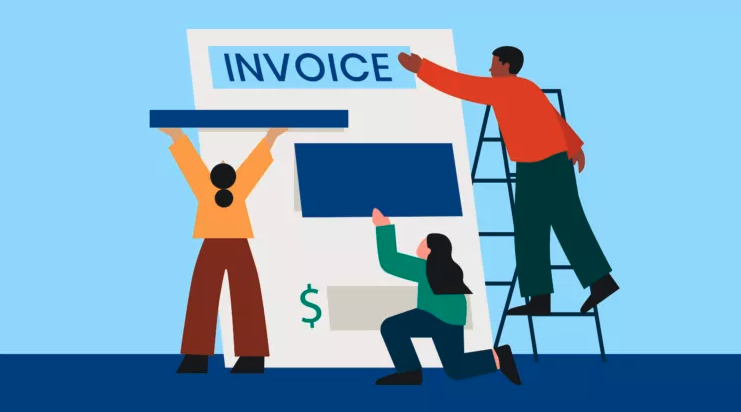Quality legal research is critical to your success as a lawyer—after all, discovering the appropriate precedent could be the difference that wins your case. But do they have to be so prohibitively expensive?
In the past, paid research platforms were the only choice, so solicitors accepted legal research tools as a costly-but-necessary expense for law firms. Today, however, the landscape of the industry has changed dramatically, with numerous excellent free tools available online—making free legal research a viable option for law firms looking to allocate funds to other areas of their practice, without compromising the quality of their research.
Indeed, high-quality, free legal research is now an option—if you know where to look.
Whether you want to incorporate new resources into your legal research portfolio, or paid legal research is straining your firm’s budget, the following collection of the best free legal research tools will help you present your best case—without the big financial investment.
6 Free legal search engines and databases
Just as cloud-based case management software revolutionises how efficiently you can run your practice, today’s legal landscape means new opportunities when it comes to legal research.
Specifically, the combination of more legal resources being digitised and the development of new technologies means that there’s now an overwhelming amount of legal information that can be found online. In addition to being significantly easier to access, many of these legal research resources are available online at no cost.
Below, we’ve curated seven of the best free search engines and databases to help you sort through the information to find exactly what you need for your legal research:
1. BAILII: For British and Irish case law
Designed to maximise access to key information and promote access to justice and the rule of law, the British and Irish Legal Information Institute (BAILII) is a non-profit resource providing free online access to British and Irish case law and legislation, European Union case law, Law Commission reports, and other law-related British and Irish material.
Frequently updated, BAILII contains databases of decisions from recent years and leading cases from earlier years of the Privy Council, House of Lords and the Court of Appeal, the Scottish Court of Session, and the Irish Supreme Court and other courts and tribunals.
You can use BAILII to search and/or find, among other materials:
- Case transcripts. New cases are loaded in BAILII on the day of release, and you can search in a particular jurisdiction or tribunal.
- Leading cases by subject. View a collection of leading cases, as identified by the legal academic community.
- Privy council decisions. Search decisions from 1860 onwards, as well as selected historical decisions from 1809 onwards.
- Legislation. Search databases for the UK, Wales, Scotland, Northern Ireland, and Ireland as passed.
- Treaty information. The UK Treaties library offers treaty information provided by the Foreign & Commonwealth Office (FCO) as web documents.
- Citations. Find guidance on the official neutral citation system which was introduced for the UK in January 2001.
- Case references. Use BAILII’s LawCite facility to trace case references (more on that next).
2. WorldLII: For global research
For times when it’s useful to look outside of the UK, the World Legal Information Institute (WorldLII) offers free, independent, non-profit access to worldwide law.
Currently providing search of over 1,800 databases from 123 jurisdictions, WorldLII’s single search facility can help you find decisions of international courts and tribunals, including case law, legislation, treaties, and other materials.
3. Cardiff Index to Legal Abbreviations: For understanding abbreviations
Search for the meaning of abbreviations for English language legal publications (from the British Isles, the Commonwealth, and the United States) with the Cardiff Index to Legal Abbreviations.
Covering law reports, law periodicals, and some other legal publication, this free database lets you search by either abbreviation or title and is under continuous development.
4. Foreign Law Guide: For locating foreign law
When you need to find foreign, international, and comparative law in the UK libraries, the Foreign Law Guide (FLAG) is the place to begin your journey. This online search helps legal researchers find details about holdings of foreign law in UK academic, national, and specialist law libraries.
5. EUR-Lex: For European Union law
Updated daily, EUR-Lex is an online resource that gives researchers free access to resources related to EU law. The website contains documents related to, among others:
- EU law
- Preparatory documents (including legislative proposals, reports, and more)
- EU case-law such as judgments and orders
- International agreements
- EFTA documents
- Summaries of EU legislation
6. InfoTrack: For an efficient, pay-as-you-go search solution
When too many sources are overwhelming your legal research process, it can be advantageous to streamline—which is where InfoTrack’s ultra-efficient technology is worth considering.
InfoTrack offers an array of legal information procurement services and tools, helping lawyers access and utilise data from numerous sources including Land Registry, Companies House, and HMRC.
InfoTrack’s product offerings are subscription-free—which means that, while not free, you only pay for what you use. Another advantage? InfoTrack is integrated with Clio, which means that all fields will automatically populate directly from the matter when you use an InfoTrack product—further enhancing your efficiency, saving time, and reducing opportunity for error.
Beyond legal databases: Other free research resources
While legal databases are incredibly useful for conducting case research, there are also other alternative sources where you can find information and resources to support your legal research. Below, we offer a few free and cost-effective options for help build your case.
1. Primary sources: For going straight to the source
Sometimes, the easiest way to get the information you need is to be direct. You can find many case law and court documents online for free. Many legislatures and courts are publishing their own materials, which are sometimes available online as downloadable PDFs—a convenience that until recently has never existed. However, keep in mind that in some jurisdictions, some online versions may not be considered “official” and can be refuted by the print version, even though they come from the same source.
Here are some resources you can access directly online:
- Legistlation.gov.uk for all primary legislation from 1988 to now.
- The Supreme Court, which offers video on demand of current and decided cases.
- UK Treaties Online, for access to information on over 14,000 treaties to which the UK is or has been a party.
- House of Lord Judgements for HTML versions of judgements from 1996 for 2009.
Keep in mind, however, that while this information might be easy to access through primary sources, you’ll likely miss out on the advances search functions or analysis features that you’d find with legal search engines and databases.
Also, older legal information may not be available online yet. In this situation, visiting a library may be helpful as you will be able to find archived legal information that is unavailable elsewhere. Also, you may find potential collaborators in your colleagues (and the librarians) who will be researching there as well. These collaborators will be a great source for information on what arguments worked in the past, and may help you find local knowledge you might not be able to uncover yourself.
If visiting the library is inconvenient, the Law Society’s library enquiry service can be of assistance as well. Law Society members can contact library via phone or email and have a team of experienced law librarians find the information you need. For enquiries that need less than 30 minutes of research, this service is free.
Another avenue to explore? If you are a member of a bar association, you should also make full use of the resources available to you through your member benefits, such as:
- Courthouses
- Law schools
- Bar Association headquarters
2. Legal blogs: For keeping up-to-date
One of the best ways to become a more efficient legal researcher is to stay ahead of the game. The best way to do that? Maintain your subject matter competency by keeping up-to-date on the latest developments in your practice area by regularly reading legal journals and legal blogs.
A few places to start?
- This post offers a collection of the most popular legal blogs in the UK, with details on their topics, post frequency, and following.
- The UK Supreme Court Blog (UKSC Blog) provides commentary on the UK Supreme Court and its judgements
- The Law Society Gazette blog offers opinions and analysis of the latest legal news on a range of relevant legal topics.
The direct research benefit of staying in the loop? By maintaining subject-matter competency,
you’ll already have certain cases and ideas in mind—so that when you’re presented with a case, you won’t be starting from scratch every time.
3. The Advocate’s Gateway: For guidance on vulnerable witnesses and defendants
The Advocate’s Gateway (TAG) is a free resource that provides access to practical, evidence-based guidance on vulnerable witnesses and defendants. This guidance includes practice-guidance toolkits, a list of recent cases relevant to responding to vulnerable witnesses and defendants, and a list of publications and other resources related to responses to vulnerable witnesses and defendants.
4. Google Scholar: For searching legal journals and published opinions
While not specifically tailored to legal research, Google Scholar allows you to broadly search and access scholarly literature—which means it’s an effective, free way to find legal documents like patents, legal opinions, legal journals, and articles.
Want the simplest way to search case law? On the Google Scholar main page, select the “Case Law” button under the search box to easily search case law, filtered by jurisdiction.
You may like these posts
Conclusion
Free—and high-quality—legal research no longer has to be a dream.
Whether paid legal research platforms are outside the limits of your firm’s budget or you just want to find cost-effective ways to conduct thorough research for your cases, today’s free legal research resources help you be more efficient—helping you better serve your clients while staying a step ahead of your competition.
What is legal research?
Legal research is the process used to identify and locate relevant laws—including statutes, regulations, and court opinions—that apply to the specific facts of your case.
We published this blog post in September 2019. Last updated: .
Categorized in: Legal Accounting






